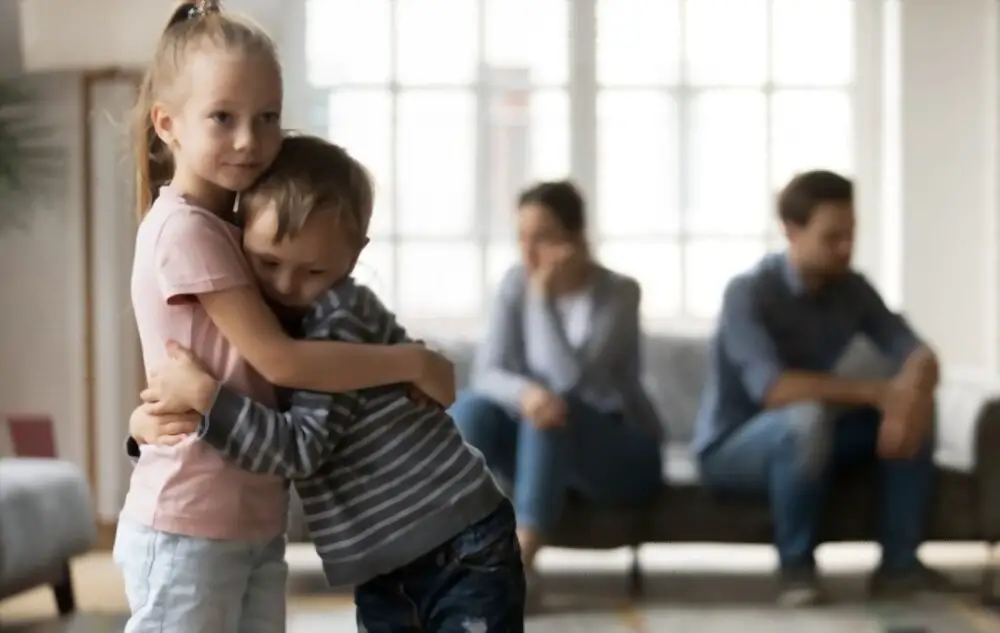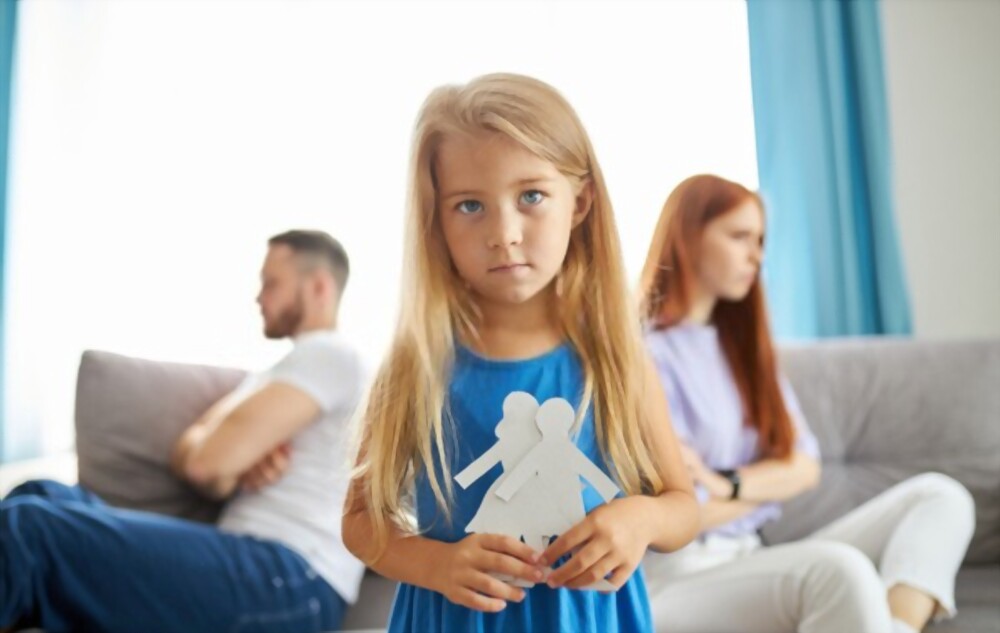Children who experience parental divorce often develop post-traumatic stress disorder (PTSD) as a result of the breakup.
The effects of divorce on children can be substantial and long-lasting. Children with divorced parents often experience significant emotional and behavioral problems, such as depression, anxiety, anger, and aggression.
The impact of parental divorce on children is very traumatic and can cause them to develop PTSD. It is estimated that 29% of boys and 39% of girls who experience parental divorce will develop PTSD at some point in their lives due to the abandonment they feel from their parents.
Signs of PTSD in Children Caused by Divorce
The signs of post-traumatic stress disorder in children with divorced parents are hard to identify because they are often different from the signs seen in adults.
The most common sign of PTSD in such children is behavioral changes. Children may have nightmares or startle more easily than they did before the trauma. They may also act out in school or regress in their social skills.
Aggression towards siblings or parents, loss of appetite, fear of being alone, mood swings, and self-destructive behavior are other common signs of PTSD in children caused by Divorce.
Signs of PTSD in children may also be emotional, such as when a child develops an intense fear or worry about something that didn’t bother them before the trauma.
They may also avoid reminders of the traumatic event and have trouble feeling positive emotions like happiness and love.
Other Children’s Reactions to Parental Divorce
- Irritability, anger, hostility;
- Reckless behavior;
- Excessive anxiety or worry (excessive worrying);
- Feeling overwhelmed or out of control with too much going on in his/her life;
- Inability to focus
At what Age is a Child most affected by Divorce

Depending on their age, children experience this ordeal in a different way.
For toddlers (less than 5 years old): very young kids do not understand what a divorce is, but feel that something is wrong. They also realize the absence of one of the parents, without understanding the reason. At this point, the feeling of abandonment felt is very strong.
In children 5 to 8 years old: at this age, the little one understands the concept of divorce, and can then experience real mourning.
He may be angry with himself, or on the contrary, be angry with one or both parents. Often, in this age group, the sons or daughters of divorced people find it difficult to relate to others.
9 to 12 years old kids: the pre-adolescent often experiences anger towards parents in this type of conflictual situation. But he is also able to understand different points of view, and can sometimes even take sides.
In teenagers: at this age teens are old enough to understand the parental separation. Less dependent on the family, they suffer less from the situation. However, it is also at this age that they risk questioning their future relationships.
How to cope with a Child’s PTSD after a Divorce
As an adult, coping with PTSD in children is sometimes difficult. However, there are techniques that can help adults understand how to cope with PTSD in their children.
The first is to listen and empathize with the child. This doesn’t mean taking on their trauma like it’s yours, but respect that the child has had something horrific happen to them and should be listened too.
If they need space, give them space; if they want company, offer your company; if they want fun times, provide fun times.
The second technique is to find other people like you or around your age for this child to interact with (if possible).
Sometimes it can be hard for them to interact with peers because they don’t understand their friends. However, having friends is important for their mental and emotional growth. If they feel like they can trust you and depend on you, then don’t let them down.
How to Protect your Child from developing PTSD after a Divorce or Split up

To reduce the risk of PTSD in children who have experienced divorce or separation, it is important that parents remain aware of their child’s experiences whether they are happy or sad.
With careful attention and effort, you can help your child overcome any emotional distress so that they will feel safe even after experiencing a terrible divorce.
The most important thing to remember is that children also respond to what they think of the divorce itself.
In fact, your child may have more trouble adjusting after a divorce if you have made it clear that they are very much a part of the decision. Sometimes, this can be difficult for parents because of their own emotions surrounding divorce.
The very best way for kids of divorced parents to recover from any emotional distress is with healthy continued contact with both parents, but when this is not possible due to issues such as finance or residence, there are still several things you can do to help your child deal with their emotions.
Final word
In conclusion, children of divorced parents are likely to develop PTSD because the divorce itself is an emotional blow to them, but also because of how it is handled by parents.
If this occurs, you have to not only be there for your children but also help them to understand that they are still a part of all you can do as a family as well as what has happened.
There are many factors that affect whether a child will develop PTSD after a divorce. Divorce itself can have devastating consequences on children’s emotions and behavior, which makes it hard for parents to deal with the situation emotionally
Perhaps the best way to help your child is by talking about their feelings with them. It’s not always easy, but it can make a world of difference in the long run. Since children often internalize their feelings, it’s crucial that they talk about them to you or another trusted adult.
The most important thing you can do is remain consistent in your parenting. Children want to feel like they can trust and depend on both of their divorced or separated parents.
Sometimes, they will try to go back and forth in order to get the best of both worlds or to keep one parent happy by giving them what they want rather than expressing how they truly feel.
Divorce can cause a huge trauma in a child, the only way for children of divorced to eventually understand and accept what has happened in their life is with consistent discussion, honesty, and kindness from both parents.
Most importantly, children need love from their parents even when it’s hard.
List of support groups
https://www.womansdivorce.com/chat.html
https://mensdivorce.com/
http://divorce911

